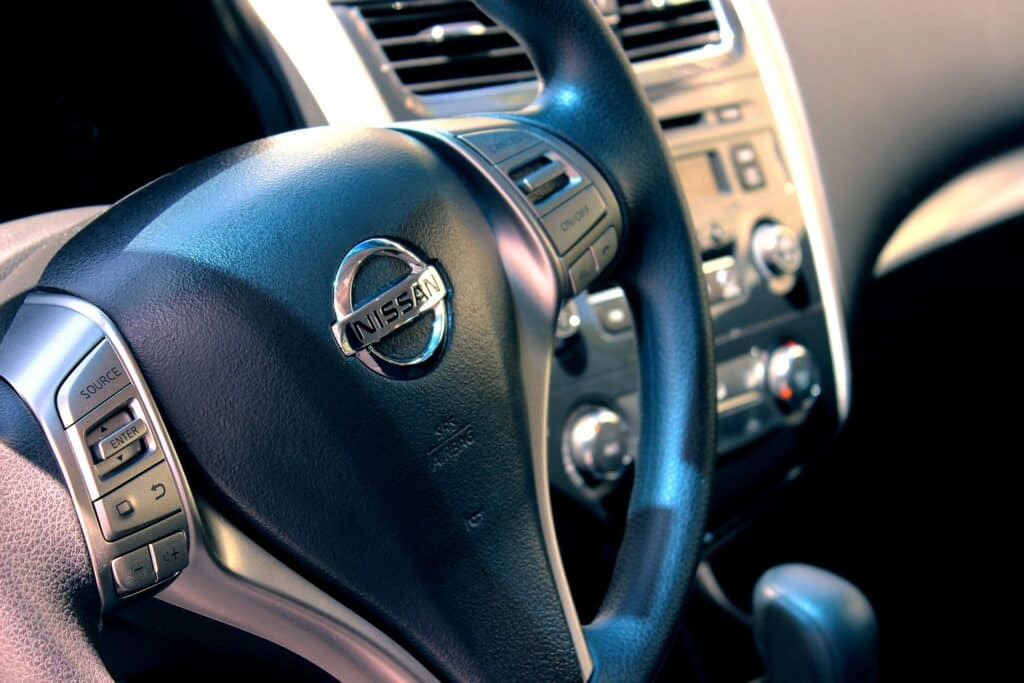Every once in a while, it is beneficial to give your power steering system an assessment to make sure it is functioning properly. Simply put, power steering helps the driver turn the steering wheel by reducing its resistance. Without power steering, drivers would have much difficulty maneuvering their vehicles, especially in low-speed areas like parking lots. Power steering decreases the number of steering wheel rotations it takes to turn the front wheels. Additionally, power steering allows for more responsiveness, meaning your car is able to make quicker, more controlled turns.

History of Power Steering
The first recorded occurrence of power steering debuted in 1951 with Chrysler. Before that, drivers had to turn the wheel many times to park or maneuver close turns. When the Chrysler Imperial came out in 1951 and included power steering, it was revolutionary for the automobile world. Electric power steering was first introduced in passenger cars in the early nineties and became the standard during the early 2000s. Surprisingly, there are still a few modern cars that do not include power steering, like the Lotus Elise and Exige, and the Alfa Romeo 4C. These cars are able to forgo power steering due to their narrow tires and lightweight. However, these cars are an exception, because almost every car produced today includes power steering.
How Does Power Steering Work?
There are currently two types of power steering available on the market: Hydraulic Power Steering and Electric Power Steering.
Hydraulic Power Steering
The original form of power steering, Hydraulic Power Steering was the only kind of power steering available from its origination up until the early 2000s. This mechanism uses pressurized hydraulic fluid to help steer the car.
Electric Power Steering
Typically found in cars produced after the early 2000s, Electric Power Steering uses an electric motor to provide steering assistance. Additionally, there are sensors in this system that help detect how much power steering assistance is necessary depending on the speed of the car.
Power Steering Maintenance Tips
Check Your High and Low-Pressure Hoses
Your power steering fluid flows through two hoses: the high and low-pressure hoses. To properly maintain your power steering, make sure their protective coverings are undamaged and the two hoses are not rubbing against each other.
Check Your Power Steering Fluid
Your power steering fluid does not need to be changed often (usually every five years or 50,000 miles). However, if your fluid is very dark or has particles floating around, it is time for a change.
Changing your power steering fluid is actually a very cheap and easy process. Follow these steps:
- Make sure you purchase the correct fluid according to your car’s manual. There are three types of power steering fluid: Automatic Transmission Fluid (ATF), Synthetic Power Steering Fluid and Non-synthetic, Mineral Power Steering Fluid.
- Next, jack up your car.
- Locate your power steering fluid reservoir. You can usually find the reservoir attached to the power steering pump. Begin to drain it by using a turkey baster to remove as much fluid as you can. After that, locate the power steering return line and place your drain pan below it. Remove the hose clamp, then position the hose above the drain pan. Finally, turn your steering wheel all the way to the left and right with the hose still disconnected to get the most fluid out.
- Flush the reservoir with new fluid. With the return hose still disconnected, run some new power steering fluid through the reservoir to empty out the remaining particles.
- Next, reconnect the return line and fill the new fluid to the “full” mark on the reservoir.
Replace Pump
If you hear a squeaking or whining sound when turning your steering wheel, it could be a sign that your power steering pump needs a replacement. Other signs of needing a replacement are increased resistance when steering, erratic response to turning, and consistently low fluid levels. It is best to get your pump checked out by a local mechanic to determine if a replacement is necessary.
Replace Filter
The power steering filter should be replaced yearly or according to the owner’s manual.

Having Power Steering Problems? Call Us Today!
Marietta Wrecker Service is a reputable towing company that can assist if you have power steering issues. If you need towing assistance for your vehicle, Marietta Wrecker has a fleet of tow trucks capable of handling any size vehicle. We offer emergency towing services and are able to quickly dispatch a tow truck to your location. With our commitment to customer satisfaction and quality workmanship, Marietta Wrecker is a reliable partner for all your transmission and towing needs. Contact us today or call us at (770) 422-6614.
